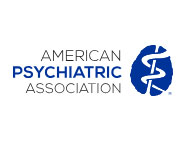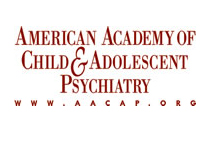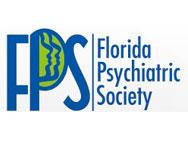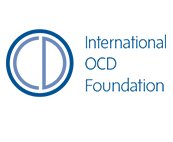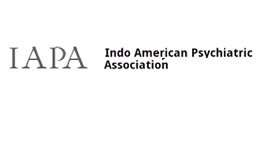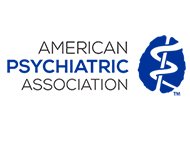Articles
Mindfulness may be as effective as antidepressant for anxiety symptoms
Treatments for anxiety, ranging from psychological interventions to antidepressants, can be very effective for some people.Experts also advise self-care, including avoiding alcohol and illegal drugs, regular exercise, regular sleeping and eating habits, and relaxation techniques, including mindfulness.
Your Guide To Somatic Symptom Disorder
Somatic symptom disorder (SSD) is a mental health condition that causes obsession over physical symptoms you experience. This condition goes beyond just causing health anxiety. People with SSD excessively focus on any symptoms they may be experiencing (like pain or fatigue) and have distressing thoughts and feelings about them.
How to Cope With Depression and Anxiety at the Same Time
Depression and anxiety are both pretty common as mental health conditions go, and for some of us—myself included—they exist together. In fact, some studies have suggested that between 20% and 40% of those with depression or anxiety have both.
Am I Depressed or Just Exhausted?
Depression and lack of sleep are closely linked. Although the two can sometimes be hard to distinguish, there are signs to look out for when your lack of energy may be more than just exhaustion
What It Means to Have Clinical Depression
Depression is a mental health disorder characterized by episodes of persistent low mood. Most of the time, “clinical depression” refers to major depressive disorder. But there are other types of depression too, such as bipolar depression, seasonal affective disorder (SAD), formally diagnosed as major depressive disorder with seasonal pattern, and postpartum depression, now formally diagnosed as major depressive disorder with peripartum onset – to name a few.
Is Depression a Disability?
Mental health struggles can be debilitating. However, mental health issues are still health concerns, and you deserve the right to get the support you need when healing. Since mental illness can be more challenging to spot than a physical ailment, it can sometimes be hard to qualify a psychiatric condition as something that requires disability support.
What to Do After a Panic Attack
During a panic attack, you might feel out of control and like the world is ending. Afterward, even when the worst of your symptoms have passed, your mind and body are still on high alert. Your chest still feels tight. Your heart is still too fast.
Social media found to be associated with more frequent vaccination
Both scholars and journalists have raised concerns that social media use might push down vaccination rates by spreading misinformation about vaccines. The relationship between social media use and vaccine uptake has never been properly examined, however. In a new paper, researchers from the Annenberg Public Policy Center (APPC) find that more social media use actually correlates with more vaccination
10 Breathing Exercises for Anxiety Relief
Breathing exercises for anxiety help to promote the body’s relaxation response. When anxious, we may forget to breathe or take shallow breaths. As a result, we don’t take in enough oxygen, which can exacerbate feelings of anxiety.
Maladaptive Behavior and Mental Health: What’s the Link?
Maladaptive behaviors are unhealthy or ineffective ways of coping with something difficult or stressful. While they can be effective in helping you avoid distress in the short term, over time, maladaptive behaviors can negatively shape your social interactions, success in school or work, and ability to function in a healthy, appropriate way within society.
Separation anxiety in teens: What to know
Separation anxiety is often a typical part of development in younger children. However, it can develop into a disorder if it continues to occur in older children and teens.
Positive emotion skills combat burnout among health care workers
The COVID-19 pandemic exacerbated already rising rates of burnout among American health care workers. A new Northwestern University study found learning and practicing skills that increase positive emotion like gratitude, mindful awareness and self-compassion helped improve health care workers’ well-being and reduce stress and anxiety.
Can Anxiety Cause High Blood Pressure?
Anxiety is a natural response to stress or perceived danger and is often associated with fear and worry. If you’re feeling anxious, you may experience physical symptoms, such as sweating, shaking, nausea, or muscle tenseness. These symptoms may become excessive or persistent if you have a generalized anxiety disorder (GAD), and may affect blood pressure, just as chronic high blood pressure or hypertension may in some circumstances cause feelings of anxiety.
Children With Mental Health Issues Have More Difficulty Recovering From Concussion, Study Finds.
Kids struggling with mental health problems have a tougher time recovering from a concussion, a new study finds.
These troubled kids tend to have more emotional symptoms after concussion and take longer to fully recover, results show.
More Than 1 in 4 U.S. Adults Plans to Make Mental Health a Priority in 2024
Over 75% of U.S. adults plan to start 2024 with a New Year’s resolution—including 28% who are resolving to work on improving their mental health, according to APA’s latest Healthy Minds monthly poll. The poll was conducted online from December 2 to 4 among 2,202 adults.
Women, Hormones and Depression
www.theparklander.com/jan2011/index.html?pageNumber=24
www.jaacap.com/article/PIIS0890856709622668/abstract
Abstract: Delirium and human immunodeficiency virus (HIV)-associated dementia are well recognized neuropsychiatric consequences of HIV infection in adults. Almost nothing is known regarding the management of delirium in HIV-infected children and adolescents. HIV-related progressive encephalopathy is thought to represent the pediatric form of HIV-associated dementia; however, this condition occurs in HIV-infected infants and preschool children and is rapidly followed by death. This report describes the identification and treatment of apparent HIV-associated dementia complicated by delirium in an adolescent girl.
All of the authors were with The Johns Hopkins University School of Medicine, Baltimore, at the time of the study. Drs. Scharko, Kothari, and Khattak were with the Division of Child and Adolescent Psychiatry; Dr. Baker was with the Department of Radiology and Radiological Science; and Dr. Lancaster was with the Department of Pediatrics. Presently, Dr. Scharko is at the Medical College of Wisconsin, Milwaukee; Dr. Baker is at the Diagnostic Radiology Department, Clinical Center, National Institutes of Health, Bethesda, MD; Dr. Kothari is in private practice at Weston Town Center, Weston, FL; and Dr. Lancaster is in private practice at The Pediatric Center, Baltimore.
Dr.Kothari is amazing! She has been my doctor for years...
I have been a patient of Dr. Kothari for over three years. She has invested her heart...
Dr. Kothari has been seeing my sons for seven years. She is a wonderful resource...
Dr. Kothari is very caring. Appointments and waiting times are great...
When we started seeing Dr. Kothari, my son was dealing with a great...
Dr. Kothari has saved my life, this I can say without reservation...

 Patient Forms
Patient Forms Videos
Videos Location
Location





